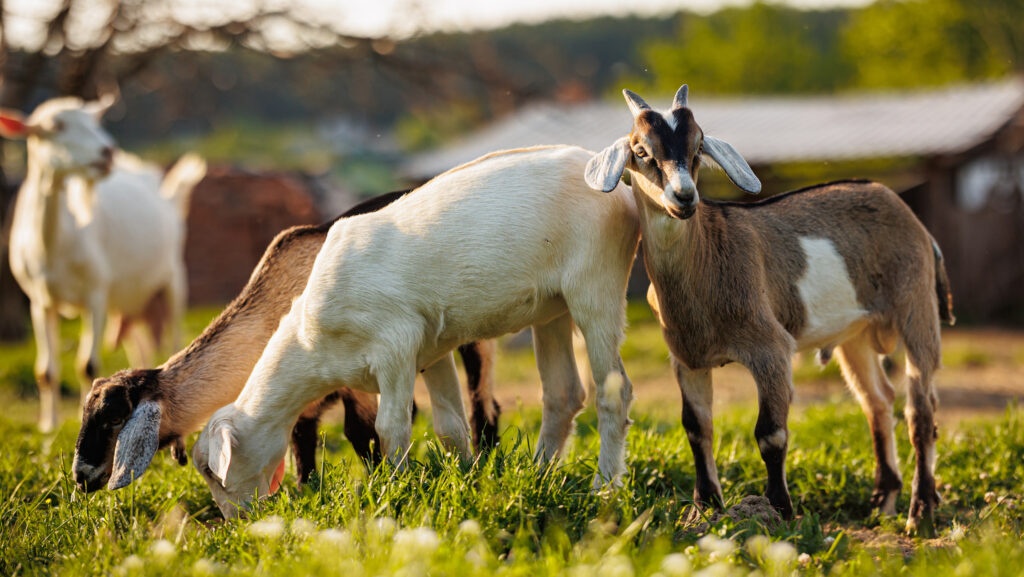Business Clinic: Should I register small scale start-up farm for VAT?
 © Adobe Stock
© Adobe Stock Whether it’s a legal, tax, insurance, management or land issue, Farmers Weekly’s Business Clinic experts can help.
Kate Bell of accountant Albert Goodman explains the pros and cons of VAT registration for a start up farming business.
See also: Business Clinic: Advice on fluctuating partnership capital
Q: I have recently bought 14 acres of farmland. I have also just registered my business as a farmer, but am building it from the ground up.
There are no buildings on site, and the fences and land need extensive maintenance and repairs.
I intend to keep laying hens and dairy goats, and sell organic eggs and goat’s cheese, yogurt and soaps.
This first year my new business will be 100% expenses, as I build the coop, the barn, and the rest of the farm buildings, as well as fixing the road access.
So, because I need to make a large investment this first year, I believe there will be no sales until next year at least, as I don’t have any livestock yet because I have no accommodation for them.
Should I register for VAT voluntarily to be able to claim the VAT paid for building and services back into the business? Or will a complete lack of sales put penalties on my business if I reclaim VAT?
A: Congratulations on your recent purchase!
Regarding VAT registration, you are entitled to register voluntarily if you plan to make taxable supplies – this includes zero-rated supplies, such as cheese and eggs.
Timing matters
Registering now and reclaiming VAT on set-up costs as you go would be beneficial for cashflow and should not in itself result in penalties.
If supplies cannot be made for reasons outside your control, the right to reclaim VAT would remain, although if your intention changed for other reasons you may have to repay some or all of the VAT reclaimed at the time your plans change.
Provided any VAT is repaid at the right time, there would be no penalty.
As an alternative, VAT registration could be delayed and VAT reclaimed on goods purchased up to four years prior to registration.
For services, you can only reclaim VAT on those provided and incurred no more than six months before registration.
Certain conditions have to be met – for example, any goods still have to be on hand, and if contractors are undertaking work this service is likely to be subject to the shorter six-month time limit.
Delaying registration will be bad for cashflow and may reduce the VAT you can reclaim.
No sales yet? That’s okay
Even if you haven’t made any sales yet while setting up your business, that’s not necessarily a problem.
However, for an activity to count as a business under VAT rules, it must involve supplying goods or services and receiving payment (consideration) with the intention of generating income.
If VAT is reclaimed it is likely HMRC will want to check your circumstances before making any repayment.
It will be important you can demonstrate you are undertaking a business activity.
Key factors include showing you aim to generate income, that the activity is based on sound business principles and it has a degree of scale.
There is no set threshold regarding scale, but a business aiming to earn £100 a month is much less likely to be considered a business than one aiming for £1,000 a month.
Being able to show there is an intention to make a profit and there is an intention to make regular sales would be helpful.
While not essential, a cashflow forecast or business plan would be useful.
In order to reclaim VAT you must hold the right evidence. For expenses of more than £250 gross, this will be a VAT invoice addressed to the VAT registered person.
Important – VAT registration scope
A VAT registration will cover all business activities of an entity.
If you are a sole trader, all your other sole trader activities (such as a holiday let, gardening, or cake business) will also become VATable from the registration date.
Similarly, if you register a partnership (such as husband and wife), any other joint businesses (for example, a furnished holiday let or car repair shop) will also fall under the same VAT registration.
You do need to consider the wider implications of VAT registration – it may well be fine and not affect anything else, but it is best to take it into consideration.
I hope this helps – the key will be to look at your future business plan and then include this outlined on the VAT registration.
Do you have a question for the panel? Outline your legal, tax, finance, insurance or farm management question in no more than 350 words and Farmers Weekly will put it to a member of the panel.
Please give as much information as possible. Email your question to FW-Businessclinic@markallengroup.com using the subject line “Business Clinic”.
